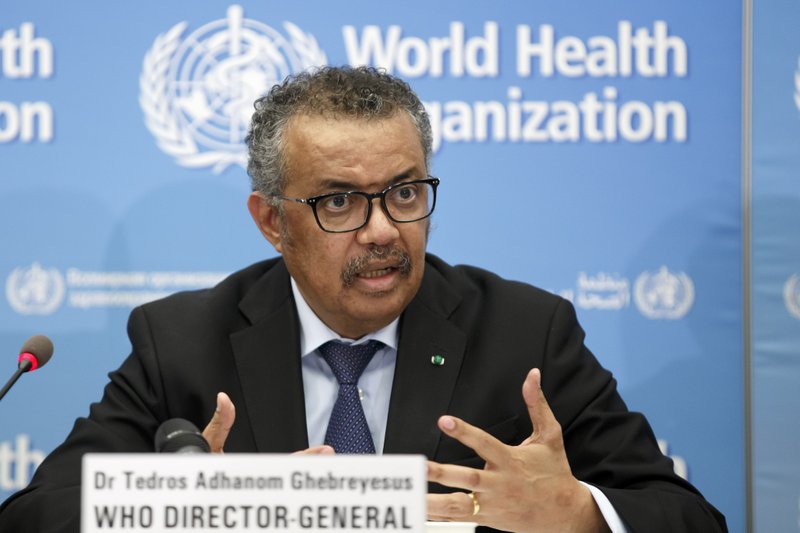China will provide $2 billion over two years to fight the coronavirus pandemic and the economic fallout from it, President Xi Jinping said Monday, rallying around the World Health Organization even as the United States has slashed funding for the U.N. health agency and sought to undermine its credibility.
The European Union’s 27-member bloc and other countries, meanwhile, called for an independent evaluation of WHO’s initial response to the coronavirus pandemic “to review experience gained and lessons learned.”

In a speech to the World Health Assembly, Xi said China had provided all relevant outbreak data to WHO and other countries, including the virus’s genetic sequence, “in a most timely fashion.”
“We have shared control and treatment experience with the world without reservation,” Xi said. “We have done everything in our power to support and assist countries in need.”
The $2 billion over the next two years will support COVID-19 response efforts, including economic and social development, particularly in developing countries, Xi said.
The EU resolution proposes that the independent evaluation should be initiated “at the earliest appropriate moment” and should, among other issues, examine “the actions of WHO and their timelines pertaining to the COVID-19 pandemic.”
U.S. President Donald Trump has in recent weeks repeatedly attacked WHO, claiming it helped China conceal the extent of the coronavirus pandemic in its early stages. Several Republican lawmakers have called on the WHO chief to resign.
In his address to the annual meeting of WHO’s member countries, director-general Tedros Adhanom Ghebreyesus warned there is still “a long road to travel” before the pandemic is contained, noting that the majority of the world’s population remains susceptible to the virus.
Tedros said the pandemic has exposed critical fault lines between countries that could jeopardize stopping the virus.
“Science has been hailed and scorned, nations have come together as never before and geopolitical divisions have been thrown into sharp relief,” he said.
Tedros emphasized that WHO declared the coronavirus outbreak to be a global health emergency on Jan. 30, its highest level of alert, at a time when there were fewer than 100 cases outside of China. In the following weeks, WHO warned countries there was a narrowing “window of opportunity” to prevent the virus from spreading globally.
Tedros added that WHO was committed to “transparency, accountability, and continuous improvement” and welcomed the proposal for an independent evaluation of the global response to COVID-19, including WHO’s coordinating role.
“I will initiate an independent evaluation at the earliest appropriate moment,” he said.
During the first few months of the outbreak, WHO officials repeatedly described the virus’s spread as “limited” and said it wasn’t as transmissible as flu; experts have since said COVID-19 spreads even faster. It declared the outbreak to be a pandemic on March 11, after the virus had killed thousands globally and sparked large epidemics in South Korea, Italy, Iran and elsewhere.
Xi said he also supports the idea of a comprehensive review of the global response to COVID-19.
“This work should be based on science and professionalism, led by WHO and conducted in an objective and impartial manner,” he said.
